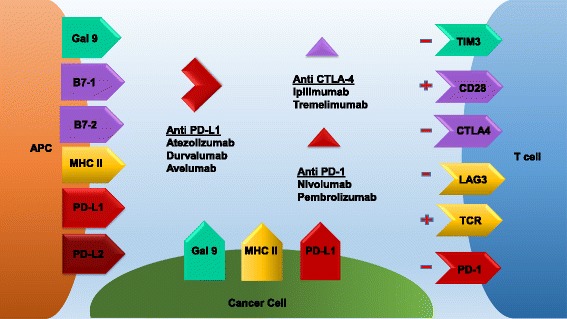Fig. 1.

Multiple receptor-ligand interactions determine T cell response. Binding of the TCR to the APC MHC II receptor presenting antigen leads to antigen specific T cell proliferation and activation. Conversely, LAG-3 binding to the APC MHC can interfere with this process. Furthermore, PD-1 on T cells binding to PD-L1 on APCs, tumor cells, or Tregs can also dampen this response. Nivolumab and pembrolizumab inhibit PD-1, while atezolizumab, durvalumab, and avelumab inhibit PD-L1 leading to T cell activation. B7-1 or B7-2 binding to CD28 also leads to T cell activation. However, if CTLA-4 binds to B7-1 or B7-2 instead, this response is halted. Ipilimumab and tremelimumab inhibit CTLA-4 allowing for T cell activation
